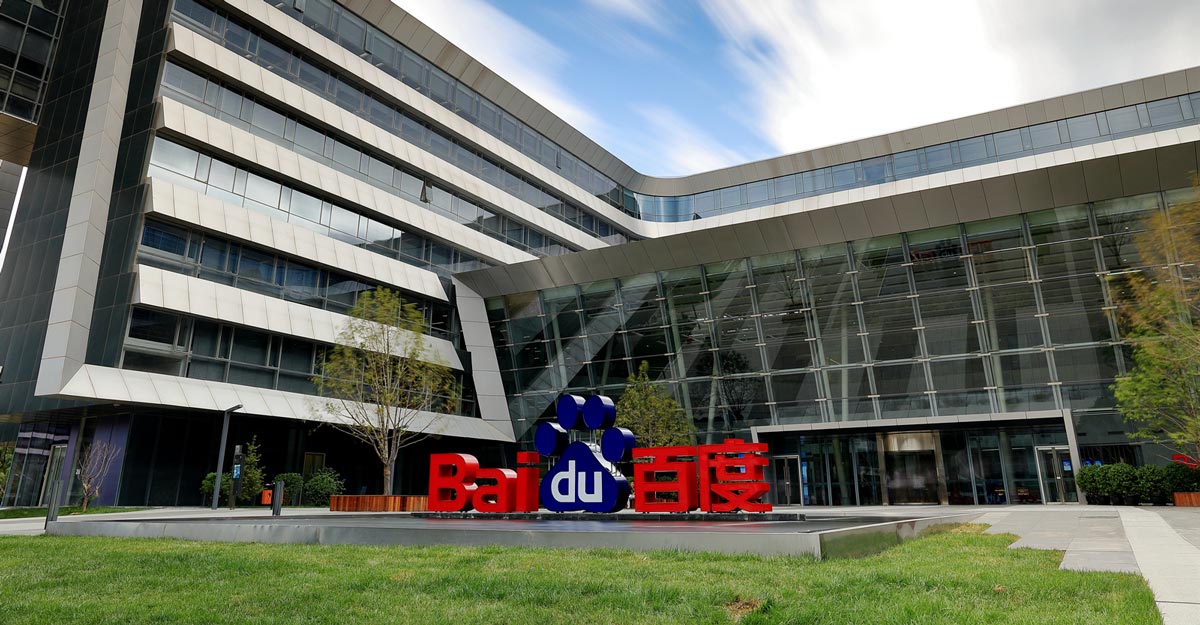By Tshilidzi Marwala*, Professor of Artificial Intelligence and Vice-Chancellor of the University of Johannesburg, South Africa
*Professor Marwala deputizes for President Cyril Ramaphosa on the South African Presidential Commission on the Fourth Industrial Revolution.
Dystopian novels have always been littered with stark warnings about the downfall of humanity that will inevitably accompany technological change. As Aldous Huxley once put it, “technological progress has merely provided us with more efficient means for going backward.” Huxley, who is most famous for his novel Brave New World, sketched an eerie picture of the future in the 1930s. Set in a world populated by genetically modified inhabitants and an intelligence-based social hierarchy, Huxley weaves a terrifying tale that prophesizes scientific advancements in sleep-learning, psychological manipulation, and classical conditioning – that ultimately alter the way human beings think and act. The flawed hero eschews it all at the end. Huxley feared that embracing scientific advancements would reduce human beings to passivity and egotism. What Huxley probably had not anticipated is that human beings would adapt and remain active participants in those advancements.
A new paradigm

Universities play a fundamental role
says Professor Marwala.
in developing the skills of future generations
as they navigate new technological directions,
As Stephen Hawking once said, “intelligence is the ability to adapt to change.” A decade ago, the advent of machines smarter than human beings still seemed like a far-fetched Huxley concept. We have seen automation in the previous three revolutions, but these were on a mechanical level for the first industrial revolution, on an electrical level for the second industrial revolution, and on an electronic level for the third industrial revolution. These developments took over labor-intensive tasks from humans, but humans found other more cognitive jobs. The Fourth Industrial Revolution, however, is an entire paradigm shift. The Fourth Industrial Revolution is premised on many technologies but chief among them is artificial intelligence (AI). AI technology makes machines intelligent. A machine is intelligent if it can analyze information and extract insights beyond the obvious. In other words, machines become superhuman and begin to alter entire industries.
Through AI, companies are predicting equipment glitches, managing workers, and increasing output. At the University of Johannesburg, we have developed an AI-based system that can predict the failure of transformers before they break down. Transformers are essential and expensive systems in the electricity grid – for example, they enable us to draw electricity from the grid to power our household devices. This ability to predict reduces inventories, improves efficiency and saves costs. These advances are not the horror show Huxley would have made them out to be. Rather, AI has great potential to increase efficiency and accuracy, which ultimately make employees’ lives easier.
At the University of Johannesburg, we have created an AI system that can restore lost voices. The MIT Technology Review featured this research, for which the university has acquired a patent via the Patent Cooperation Treaty. We have also used AI to diagnose leukemia and to detect epilepsy. The increased speed and accuracy of cancer diagnostics through analytics, which can characterize tumors and predict therapies, have not replaced doctors but have quickened their efforts and given them the time to attend to more patients.
The future of jobs
While the fear is that millions of jobs will disappear as a result of more automated and machine-intelligent processes, these technologies are an opportunity to transform professions and make human beings much more productive. South Africa’s economy is growing at less than 1 percent per year and unemployment is climbing – fears around mass job losses resulting from another industrial revolution are difficult to curb.
It is not just unskilled workers who worry about being replaced by machines; workers in skilled professions such as medicine and finance fear the change too. At the University of Johannesburg, we have built AI machines that can price options and derivatives, perform credit scoring, manage portfolios, predict stock prices, estimate and price risks and predict interstate conflict. The work on interstate conflict is published as a book and has also been translated into Mandarin by the Chinese Defense Press. Establishing pricing risks is work that traditionally is performed by white-collar workers. However, the Fourth Industrial Revolution is expected to disrupt white-collar workers as compared to blue-collar workers. Think about it – how much easier is it to automate the work of a credit scorer in a bank than that of a tree feller!

The best strategy to stay ahead of the changing needs of the labor market is to retrain, upskill and transform the workforce,
says Professor Marwala.
Economist Kenneth Rogoff explains that, “since the dawn of the industrial age, a recurrent fear has been that technological change will spawn mass unemployment. Neoclassical economists predicted that this would not happen because people would find other jobs, albeit possibly after a long period of painful adjustment. By and large, that prediction has proven to be correct”. For example, in the 18th century, fears over the impact of machinery on jobs intensified with the growth of mass unemployment. Nevertheless, in the second half of the 19th century, it became increasingly clear that technological advancement was benefiting all segments of society, including the working class.
While the Fourth Industrial Revolution is displacing specific jobs through automation, new occupations are also being created. The World Economic Forum’s Future of Jobs Report 2018 noted that the future of jobs, high-speed Internet, AI, big data analytics, and cloud technology are the biggest disruptors in the workforce. The characteristics of the workforce are indeed changing and shifting. By 2022, the average task hours performed by human beings is projected to be 58 percent compared to 42 percent by machines.
It is envisaged that demand in the labor market will be for professionals who have a blend of science and technology with human and social sciences. This can be achieved through multi-disciplinary education. In response to the need to nurture these skills and to fill this gap in the labor market, the University of Johannesburg has introduced a Bachelor’s degree in Politics, Economics, and Technology.
Re-skilling the workforce: a role for universities
The best strategy to stay ahead of the changing needs of the labor market is to retrain, upskill, and transform the workforce. Career paths are changing fundamentally. The labor market is shifting towards hybrid jobs that combine skill sets such as marketing and data analysis, or design and programming. So how do businesses succeed in a 4.0 business climate? That is the burning question we face.

Many universities, including the University of Johannesburg, have started working together with businesses and are incorporating the new skills they require into the curriculum,
notes Professor Marwala.
Universities play a fundamental role in developing the skills of future generations as they navigate new technological directions. As we now see, this requires the reskilling and upskilling of our workforce. It also requires that universities partner with the private sector to ensure their research programs are aligned to real-world needs, that they develop effective intellectual property (IP) strategies and that they establish dedicated technology transfer offices (TTOs). These offices play a pivotal role in enabling the transfer of the knowledge that comes from university research to the market. The commercialization of this knowledge, using the IP system, can support business growth and economic development. The University of Johannesburg has positioned itself at the forefront of the fundamental and rapid changes that are occurring in industry. That has involved revisiting the way in which we teach and package knowledge into modules and qualifications to ensure that students are equipped for further study or employment.
Many universities, including the University of Johannesburg, have started working together with businesses and are incorporating the new skills they require into the curriculum. Many employers are also partnering with universities to develop tailored learning programs for their employees to prepare them for emerging job opportunities. How best do we tailor our curriculum to suit the needs of companies? How do we help companies adapt to this changing work environment? These are some of the big challenges universities face. Part of the solution involves rethinking the way degree programs are set up. Students want the freedom to choose courses beyond a limited program in order to acquire a broader range of skills. They want to define the pace of learning and to have access to content remotely. Universities need to respond to this.

Many are already adopting a model that allows students to enroll in stackable degrees by giving them multiple entries and exit options and by using technology, such as data analytics, to develop customized learning paths.
To remain competitive, it has become critically important for companies to leverage and invest in relevant innovation and disruptive technologies. Universities can support this process by offering flexible multi-disciplinary programs that respond to these real-world needs and that enable young people to acquire the skills needed for the jobs of the future.
Behaviors for digital transformation
A report by Tata Consultancy Services (TCS) on the behaviors of digital transformations, calls for businesses to adopt four key behaviors. The first involves driving mass personalization, which allows companies to offer personalized products and services at scale. The second relates to creating exponential value, which enables businesses to gain more value from a single transaction by using technology, such as data analytics and AI, to forecast future customer needs and points of engagement to target a broader range of potential customers. The third behavior requires leveraging ecosystems to foster collaboration among multiple partners beyond supply chain networks, so that they are no longer forced into silos. And all these behaviors require that companies embrace risk to stay ahead of the competition and are able to provide better value to customers. The report found that only around one in 10 organizations surveyed have adopted all four behaviors suggesting there is still a great deal of progress to be made.

The shift that is required in the Fourth Industrial Revolution is in the workplace and is predicated on greater efficiency as human beings and machines learn to work together, enhancing supply chains and ultimately boosting economic growth. This is particularly important in South Africa as we try to kick-start our economy. In a country that has barely managed to achieve growth rates of 5 percent – a level required to make a dent in the increasing unemployment rate – it is essential that we tap into the opportunities that the Fourth Industrial Revolution brings. South Africa is an open economy that is connected to the global economy. Weaker global growth bodes ill for South Africa – we saw the hit South Africa took with the global financial crisis. Although global growth remains tepid, there is untold potential to tap into the emerging opportunities garnered by the Fourth Industrial Revolution. The World Economic Forum estimates that it will create up to USD 3.7 trillion in value by 2025.
The promise of AI
The McKinsey Global Institute’s report on the impact of AI on the world economy suggests that AI has the potential to incrementally add 16 percent or around USD 13 trillion to current global economic output by 2030 – that is, an annual average contribution to productivity growth of about 1.2 percent over the next decade. When we break this down, automation of labor could add up to 11 percent or around USD 9 trillion to global GDP by 2030, while innovations in products and services could increase GDP by about 7 percent or around USD 6 trillion.
Nobel Laureate Robert J. Shiller said, “you cannot wait until a house burns down to buy fire insurance on it. We cannot wait until there are massive dislocations in our society to prepare for the Fourth Industrial Revolution”.
The time to prepare ourselves for the Fourth Industrial Revolution is now!



